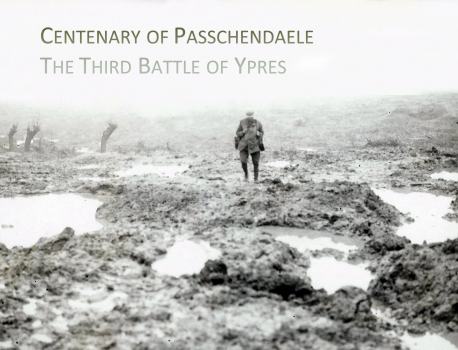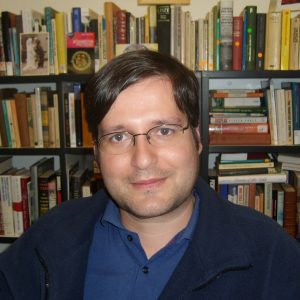Memories of Futility: The Passchendaele Method of War

“So fruitless in its results, so depressing in its direction was the 1917 offensive, that ‘Passchendaele’ has come to be synonym for military failure, a name black-bordered in the records of the British Army” (Basil Liddell Hart, 1934).
Rarely does one word trap an image with such nerve tingling fright and awe. But as an image of slaughter, of men needlessly butchered, lives surrendered over absentee stone hearted generals with an understanding of war lost in the amnesia of small arms fire, spears and straw dress, one suffices. Passchendaele became the code for blood needlessly spilt; for decisions that should have, in any other context, demanded the trial and execution of its initiators.
A century ago, wave upon wave of men were shredded, pulverised and drowned according to misplaced notions, killed by obsolete ideas in what was the Third Battle of Ypres. The Americans had yet to arrive to make a difference in the conflict, while a bleeding Russia had been vanquished, facing revolution. The French, preoccupied with mutinies, needed a fortifying distraction.
Britain and its imperial forces were intent on providing one, with Sir Field Marshal Sir Douglas Haig convinced that the German line would collapse with one last, but all-comprehensive strategic thrust.
The battle had been preceded by what came to be considered the largest man-made explosion in pre-atomic times, featuring 19 tunnelled mines beneath German lines on Messines Ridge. E.S. Turner goes so far as to claim that British prime minister Lloyd George, it had been rumoured, wanted to be woken up at 3 in the morning that June night.
The initial enthusiasm, as with so much in the Great War (1914-1918), was misplaced. “I died in hell,” recalled war poet Siegfried Sassoon. “They call it Passchendaele.” As the blood drained in conditions so swampy as to render the trenches almost aquatic (many soldiers drowned in shell holes); as the ammunition and shells were expended, humanity’s great skill of killing for reasons of futility became apparent.
It was a futility that kept the awards machine busy. Lasting three months and a gain for the Allies of a mere five miles, the Victoria Cross, deemed the highest of Commonwealth military honours, was awarded 61 times. Haig had lost a sixth of the British army. As historians Robin Prior and Trevor Wilson note in Passchendaele: The Untold Story (1996) a psychological breakdown also took place during the battle, marked by desertion and drunkenness.
The accounts have been saturating the commemorations across several countries whose soldiers perished in the muddied industrial abattoir. In Christchurch, New Zealand, an opening exhibition titled “The Belgians have not forgotten” shined a grim light upon a conflict which cost the combating sides over half-a-million casualties. For this sliver of a country, some 2800 troops were killed wounded, or went missing within a matter of two hours.
New Zealand’s fraternal neighbour, Australia, also busy on the commemoration circuit. It had committed its fair, grotesque bounty of blood to the battle. By the time the battle ended on November 10, Australia’s five committed divisions had suffered 38,000 casualties, including 12,000 killed.
In London’s Trafalgar Square before the National Gallery, a mud soldier, the creation of Dutch artist Damian Van Der Velden, was erected, to be left in gradual dissolution before rain. The statue itself was compacted from the historically churned Passchendaele mud.
These exhibitions and ceremonial points all serve a similar purpose. For Dave Adamson of the Waimakariri Passchendaele Trust, it was the promotion of “peace and understanding”. But the peace and understanding such efforts have are less to the members of the public than those who would bag and hoodwink it. For them, war remains a good, even necessary thing.
Harry Patch, the supercentearian “last Tommy” who died at venerable age of 111 in 2009, put the case flawlessly: “I felt then, as I feel now, that the politicians who took us to war should have been given the guns and told to settle the differences themselves, instead of organising nothing better than legalized mass murder.”
The end point of such futility is that humankind hugs the death god with all too much enthusiasm. Gone are the trench filled nightmares of industrial slaughter. Now, conflicts are undeclared, open-ended, described as forensic horrors marked by surgical strikes.
To live life, to be loved, and then, to be surrendered to an insidious Thanatic drive all too often willed on by others. “We lived, felt dawn, saw sunset glow,” goes John McCrae’s haunting words, “Loved and were loved and now we lie/in Flanders fields.”
Even more important are the words that follow: that the dead shall be, as it were, trapped in an interminable state of restless, mournful sleeplessness, a nocturnal nightmare should faith be broken with the sacrifice of the fallen: “We shall not sleep, though poppies grow/In Flanders field.” If faith is there to be broken, is it not in the ties between humankind so much as its sanguinary leaders who keep insisting that slaughter and an inventory of dead are necessary for matters of state.
 Dr Binoy Kampmark is a senior lecturer in the School of Global, Urban and Social Studies, RMIT University. He was a Commonwealth Scholar at Selwyn College, University of Cambridge. He is a contributing editor to CounterPunch and can be followed on Twitter at @bkampmark.
Dr Binoy Kampmark is a senior lecturer in the School of Global, Urban and Social Studies, RMIT University. He was a Commonwealth Scholar at Selwyn College, University of Cambridge. He is a contributing editor to CounterPunch and can be followed on Twitter at @bkampmark.









8 comments
Login here Register here-
helvityni -
Joseph Carli -
helvityni -
helvityni -
king1394 -
Harquebus -
Miriam English -
Miriam English
Return to home pageGood on ya, Harry Patch:“I felt then, as I feel now, that the politicians who took us to war should have been given the guns and told to settle the differences themselves, instead of organising nothing better than legalized mass murder.”
True words, Harry, then and now…
The Fallen.
Getting a bit fatalistic at the continuous cycle of war memorials / war marches / war dedications…can we not sometime leave such horror and sadness to lie in peace and start to concentrate on the present living?
The Fallen.
A soldier falls at Passchendaele,
A mother weeps at home.
In one hundred years between,
A billion come and gone.
But who will weep for Ginny,
Who will weep for Tom,
A woman beaten dead at home,
A black man’s lost his son.
A billion die in poverty ,
Millions starved or bombed…
A soldier falls at Passchendaele
And the nation’s marching on.
And it’s for this war or it’s that,
Never for a Billy or a Joan.
A soldier falls at Passchendaele
And still we’re marching on.
They’ll always have us marching,
Always fighting on.
For God, King and country,
Poncierres, Ypres or The Somme.
A thousand wars “worth fighting”
And not one lost nor won.
But still the soldier falls forlorn
And a mother weeps at home.
Tho’ we march for glory
We march and sing the song .
Marching, marching, bloody marching,
Seeking a glory so long gone.
But who will weep for Angeline,
Who will weep for Sam?
And for the billion lives between ;
Raped-cheated-broken-starved and beated…
Or shall we cry for none?
A soldier falls at Passchendaele,
All our mothers weep alone.
Judge instead the liars brought us here,
And pray; let our world get moving on.
Beautiful, JC, and who weeps for Reza, Ahmed, A, or the black boy from North who stole a chocolate frog worth sisty cents, and who was charged..to teach him a lesson… In some countries (Italy?) stealing a small amount of food is not a crime….
oops, A=Ali
The tragedy of war is concealed by the ‘one day of the year’ in this country. Every school child learns about the landing at Gallipoli but after that the average Australian’s knowledge of history is very limited. Only the other day it seems that Turnbull promised Trump all support and no strings for any future adventures in killing and dying
What riles me is the politicians eagerness to appear patriotic and hail our fallen heroes for their sacrifices only to turn around and remove bit by piece that for which, those sacrifices were ‘supposedly’ made. Liberty and freedom.
How so many could have died for what was a family dispute between inbred cousins. The British royals at that time changed their name from Germanic Saxe-Coburg-Gotha to Windsor.
http://www.history.com/this-day-in-history/britains-king-george-v-changes-royal-surname
Search criteria: ww1 british royal name change
.
The good fight
by Miriam English
Are we tired of the good fight yet?
When good men and women feel the tug of gods’ duty
and vow to avenge and slake the need for blood.
But fires stoked by blood are only quenched with more blood
…and so around and around again…
Are we tired yet?
The good must press on.
god and honor (two mightiest human inventions) demand it.
Good must consume evil.
But good and evil, like beauty, depend upon the beholder.
Nay, scream the crazed ones: good is absolute!
Evil is absolute!
And our god tells us this…
(we alone have this privileged knowledge)
we dare not relent
we must not flinch
in our sacred duty to the good and true fight.
The threat must be cleansed
god against god; honor against honor
till the last drop squeezed.
When will we tire of it?
These gods are surely thirsty demons!
(You could replace “god” with “king”, or “leader”, or “general” in the poem above.)